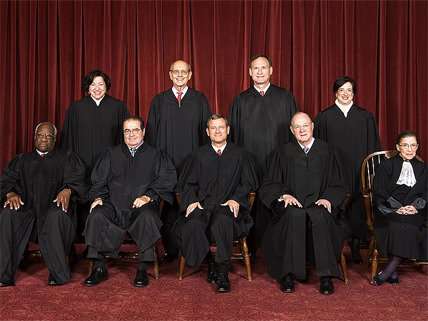SCOTUS Overturns L.A. Law Allowing Police to Conduct Warrantless Searches of Hotel Guest Registries
SCOTUS issues 5-4 decision in Los Angeles v. Patel

In a 5-4 decision issued today, the U.S. Supreme Court struck down a Los Angeles law which had required hotels to make their guest registries "available to any officer of the Los Angeles Police Department for Inspection" without the need for a warrant.
"A hotel owner who refuses to give an officer access to his or her registry can be arrested on the spot," observed the majority opinion of Justice Sonia Sotomayor. "Business owners cannot reasonably be put to this kind of choice." Under Supreme Court precedent, she explained, "absent consent, exigent circumstances, or the like, in order for an administrative search to be constitutional, the subject of the search must be afforded an opportunity to obtain precompliance review before a neutral decisionmaker." Because the Los Angeles law did not allow protesting hotel owners to seek such review in the face of police commands, the law was ruled unconstitutional under the Fourth Amendment.
"To be clear," Sotomayor added, "we hold only that a hotel owner must be afforded an opportunity to have a neutral decisionmaker review an officer's demand to search the registry before he or she faces penalties for failing to comply. Actual review need only occur in those rare instances where a hotel operator objects to turning over the registry."
Sotomayor's opinion was joined in full by Justices Anthony Kennedy, Ruth Bader Ginsburg, Stephen Breyer, and Elena Kagan. Chief Justice John Roberts and Justices Antonin Scalia, Clarence Thomas, and Sameul Alito all voted in dissent.
The Supreme Court's opinion in Los Angeles v. Patel is available here.


Show Comments (62)